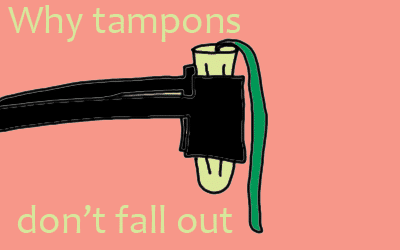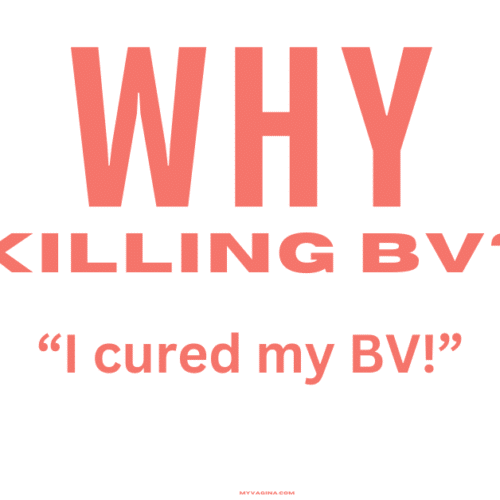Why tampons don’t fall out
The vagina is a muscular tube held in place by more muscles (the pelvic floors). If you can get a tampon in, then it will sit, suspended, inside the vagina with absolutely no problems at all, and what’s more, you won’t be able to feel it. That is because the inner vagina has very few nerve endings compared to the rest of the vaginal tissue, particularly the entrance, and is made up of muscles.
A tampon of any size will fit – until it’s full – inside the vagina, held in place by the muscles of the vagina, which are always ‘on’, and tense, just like your heart will always beat. These muscles relax somewhat during sexual arousal, but almost all the time that a tampon would be inside a vagina (during your period), the muscles remain tense as their natural state. The tampon itself does not cause the vaginal muscles to tighten.
A very, very full tampon, however, may eventually slide out, since it becomes very slippery with menstrual blood and sometimes clots. This is normal, and will alert you to the need to change tampon. You will normally feel when a tampon is sliding out, because ordinarily you cannot feel the presence of a tampon deep inside the vagina, but you can feel it when it starts to creep nearer to the vaginal entrance, which has far more nerve endings that inside the vagina.
A full tampon may stay completely in place deep inside the vagina, or it may creep out – you need to be aware of how heavy your bleeding is on any given day so you can figure out if a tampon is likely to be full or not.
Tampons won’t ever just ‘fall out’ of you without warning.
Learn about vaginal tightness, and basics of vaginal anatomy.






